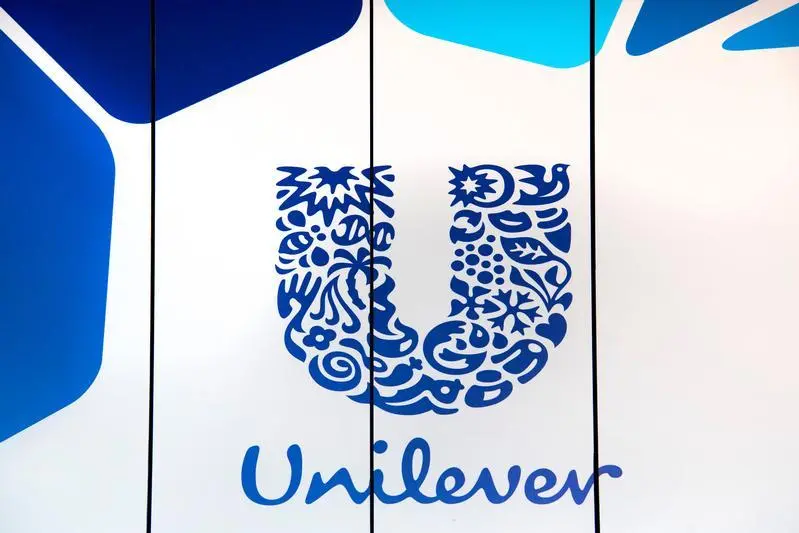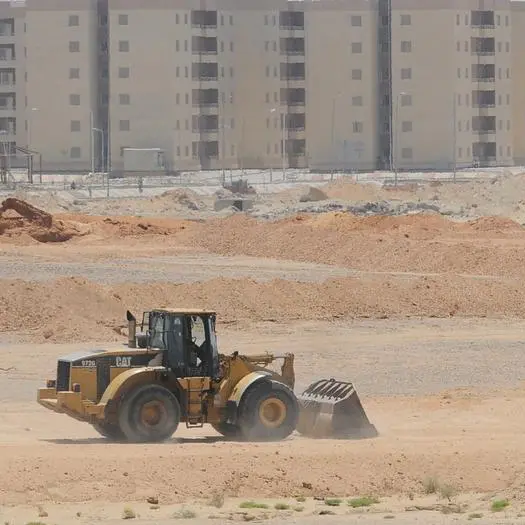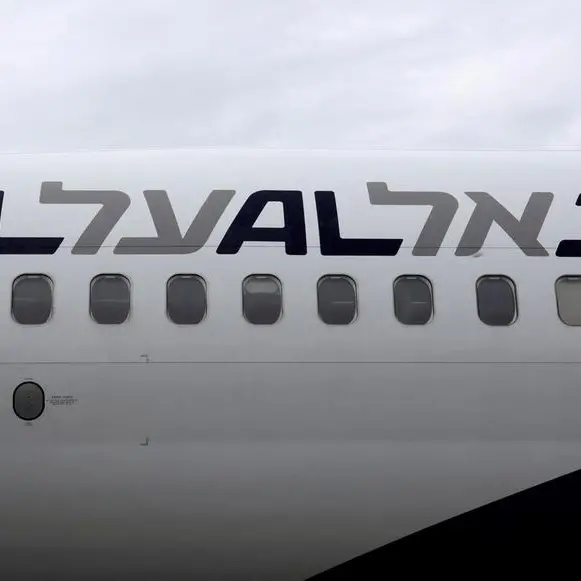PHOTO
Unilever Mashreq is to invest more than 60m in Egypt within the coming three years.
The company`s Chief Supply Chain Officer Marc Engel told Daily News Egypt on the side-lines of his first visit to Egypt that the global sales reached almost 55bn in 2018, mentioning that year to date, the company`s global sales witnessed a 3% growth.
The interview discussed the opportunities, and challenges of Unilever in Egypt, the company`s expansion plans, its perceptions of the Egyptian market, and many other topics.
In one month, two top executives from Unilever visited Egypt. Last month the CEO visited Egypt and now the chief supply chain officer (CSCO) is in Egypt. How does the company globally look at Egypt?
Egypt is an important market for us. It has always been one of our fastest growing markets. It had a period of turmoil, but what we’re seeing very clearly now that Egypt is back. We look at Egypt very enthusiastically and positively.
From the supply chain point of view, Egypt is actually connected to more than one billion consumers through free trade agreements.
By looking at all the free trade agreements that Egypt has with a number of countries around the world, we will find billions of consumers. The opportunity for Egypt to become much more important as an export and manufacturing hub for us as a company is great. Egypt also has an enormous and talented hub.
Overall, the connection, consumers, workforce skills, and technical skills, make Egypt a favourable location for us.
What are the criteria you look at when choosing a country to build a factory or becomimg a trigonal manufacturing hub?
The first thing that we always look at is where the nearest market you can sell to is. We look at the trade and duty landscapes around the world. In addition, we consider the cost of utilities, the labour skill, as well as how the government facilitate doing business, and how easy is it to import or export.
We also study the customs operations because when you have a factory, you usually import raw materials and then you want to export finished goods.
The logistics connection is also something we examine, including the closeness of a country to a port, whether the port is connected to the rest of the world easily, how often ships come, and if it is a competitive route.
There’s essentially a list of things, but it always has to start from the consumers location, and how the factorys position is connected to them.
What are the advantages of manufacturing in Egypt?
The fact that Egypt has so many free trade agreements is a very big advantage because it connects us to many markets around the world without trade duties. For us, the advantages of Egypt are good talents, its connectedness to other markets, and it`s strong local industry environment.
How many factories does the firm have in Egypt?
We have five factories in Egypt for personal care products, home care products, soaps, food products, and Lipton tea.
What is your market share in Egypt?
We are market leaders in 80% of our products in Egypt, acquiring an average 80% of the market in all the products categories.
How much does the companys export rate account for the total annual sales? What is your target export rate?
It is difficult to specify that number, but we export by around $140m in annual base and we target to double this number in five years.
It is important to mention that half of what we produce is sold in Egypt and the other half of production is sold in other countries. So, Egypt is already an important export hub for us.
Having said that, Unilever Mashreq exported more than 50% of its production in 2018, and is expecting to witness a slight increase by end 2019.
Which countries do you export your products to?
Unilever exports through Egypt to 50 or 51 countries, including all North African, Middle Eastern countries, including Saudi Arabia, UAE, Kuwait, Bahrain, Qatar, Oman, Tunisia, Algeria, and Libya. We also export small orders to Russia and Europe as well. Unilever also exports halal (religiously accepted) products to Canada.
Our company exports also to East Africa and other African countries including Kenya,and Ethiopia.
Are there any countries that Unilever wants to enter?
Unilever operates in 190 countries around the world. I think there’s only three countries where we don`t operate.
It’s not that we are not in those markets, but it’s more around the sourcing opportunity, and what role a country can play in being a competitive source for other markets.
How many employees does the company in Egypt?
Unilever has 22,000 direct and indirect employees.
How many distribution centres does Unilever have in Egypt?
We have main distributors in every governorate in Egypt.
What are the challenges that the company faces in Egypt?
Egypt has grown a lot. It has been a very good journey for us, but we are concerned about the cost of utilities since it’s gone up a lot with government removing subsidies.
I think that was the right thing to do for the country, but it is certainly adding more challenges to maintain our competitive position in Egypt.
In my opinion, there is a great of opportunity for Egypt to use more green energy. There’s a lot of sunshine here in the country, but there’re hardly any solar panels. Egypt has the chance to become greener in energy, and the cost could come down without subsidies.
We are a bit concerned about the customs operation; it caused some disruption to the business. It an important area to the country to look at and to work to reform the whole clearance operations to enhance the country in trade across borders in doing business. I am very happy to know during my visit that the government is putting customs clearance on top of its reform agenda.
Egypt has a great potential to come an export hub to many companies and to achieve this one of the key things that we would really like to see improved is the day to day customs operation because for running and export manufacturing, it is an absolute must to have a competitive operation.
We also face another challenge as we always want to engage more women in our factories, with appropriate conditions of transportation and so on. On the other hand, the labour law does not allow women to work except in the morning shifts, which does not help factories hire more women, even if the women themselves are ready to work evening shifts.
How can you evaluate Egypt`s current economic situation ?
In my opinion, the government has done a great job in their reform policy. Egypt`s economy is growing with higher growth rates and consumer habits are changing rapidly.
Egypt is following the trends that impact business globally, including the progressive development for digital media. I think the country is open for business and investments and is moving in the right direction very quickly.
We always think that countries have a more sustainable economy when more of the GDP is driven by consumption. One of the things we would like to see in Egypt is more GDP growth by consumption, because a lot of it is now by investment and infrastructure, but we think that will change.
Unilever has a lot of trust in the direction that the government has been taking; its pushing Egypt forward.
After the pound flotation, the consumption patterns of Egyptians were affected. How do you deal with these changes?
Consumers were shocked at first, and subsequently this increase in prices significantly influenced their consumption, thus they used to put priorities. But then they returned back to their normal consuming patterns and choose quality products
We faced this change in the patterns, but we responded by diversifying the packaging of all our products to serve all customers in all categories.
Climate change is a global issue now. Unilever is one of the companies committed to reducing its carbon footprint. Can you elaborate more on the actions taken by Unilever?
The company has been committed to being carbon neutral in its operations by 2030.
We have just announced about a month ago that all the electricity we use around the world is from renewable sources, except in two states of Australia that we are still working on.
Unilever does that in 190 countries around the world where the electricity is already 100% renewable.
With regards to Egypt, I think it is also a renewable energy source. We can get about a third of our energy demand met via solar energy.
Currently we have only three locations left where we are dependent on coal, however the company is pushing very hard to be carbon neutral.
We’re also currently working on the heat requirements of our operations, to use less gas and more electricity, or let’s say finding bio gas, or biomass to generate the steam and hot water needed for production.
Besides, we’re looking at deforestation free commodities, as we use a lot of palm oil around the world, we’re working very hard to combat that deforestation.
You have made a commitment two months ago that you will reduce the use of virgin plastic by 50% by 2025, tell us more about this commitment?
The last thing that Unilever does to face climate change is reducing the usage of plastic. We are using about 700,000 tonnes of plastic, which is considered a big amount.
Some of the plastics are 100% recycled from what we call PCR, and we are working hard in Egypt to use more recycled plastic.
Moreover, Unilever is working with a local company to help us put more recycled plastics in our products portfolio and this is a big opportunity for Egypt since the plastic economy is changing very fast, and so is consumer behaviour.
2019 Daily News Egypt. Provided by SyndiGate Media Inc. (Syndigate.info).





















